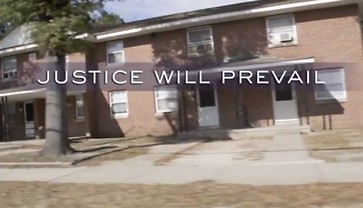Relman Colfax represented a plaintiff class in a lawsuit filed in the U.S. District Court for the District of Columbia against Richmond School of Health and Technology, Inc. ("RSHT"), which owns and operates a for-profit vocational college on campuses in Chester and Richmond, Virginia. In the amended complaint filed on August 3, 2011, seven named Plaintiffs alleged that RSHT uses a variety of deceptive practices to encourage students to take out large federal student loans for an education that the school knows is inadequate, and that RSHT targets African Americans and residents of low-income neighborhoods for enrollment. The class alleged violations of the federal Equal Credit Opportunity Act, Title VI of the Civil Rights Act of 1964, the Virginia Consumer Protection Act, breach of contract, and fraudulent inducement to contract.
The lawsuit alleged that RSHT charged $10,000 to $28,000 for its programs, which the school claimed prepared students to become licensed and/or certified for positions in the medical field such as a surgical technician, medical assistant, massage therapist, and others. Yet the school did not prepare students for certification or licensing tests, failed to offer externships to students who need them for certification or licensing, and did not provide basic resources such as training equipment, up-to-date textbooks, or even teachers in its classrooms.
RSHT applied for and obtained more than $5 million a year in federal financial aid on behalf of its students to keep the school operating, chiefly in the form of federal student loans. The lawsuit alleges that RSHT committed fraudulent and dishonest acts to secure these funds, such as cutting and pasting student signatures onto financial aid forms and altering records in anticipation of regulatory audits. RSHT failed to explain the loans to students and misrepresented how much they will have to pay every month when the loans come due.
As a result of these practices, students graduated from RSHT saddled with large debts but without improved employment opportunities. Unable to pay back their loans, many RSHT students were left with impaired credit, making it difficult for them to obtain loans and jobs in the future.
The lawsuit alleged that RSHT engaged in "reverse redlining" by using various marketing strategies to target African Americans and low-income neighborhoods in the Richmond area. This included advertising on BET and hip-hop radio stations. RSHT's student body is 75% African American even though the area population is only 30% African American. Relman, Dane & Colfax believes this case was the first reverse redlining case ever filed against a for-profit college in the country.
In addition to the seven named Plaintiffs, the amended complaint was supported by forty declarations of current and former RSHT students in the Community Home Health, Licensed Practical Nursing, Massage Therapy, Medical Assistant, Medical Billing and Coding, Pharmacy Technician, and Surgical Technology programs. These declarations provide an extraordinary amount of detailed evidence related to RSHT’s intentional, fraudulent, and discriminatory practices.
On July 25, 2013, U.S. District Judge John A. Gibney, Jr. granted final approval to a $5 million class action settlement. The settlement required RSHT to pay $5 million to the class, which included all students who were enrolled at RSHT at any time from July 1, 2004, through February 28, 2013. The parties estimated that there are approximately 4,162 members of the class.
The settlement also required RSHT to maintain and disclose information about its students’ success, as well as information about assessments of the school by certain educational organizations. It also required RSHT to follow the refund policy recommended by the Council on Occupational Education, an accrediting organization.
